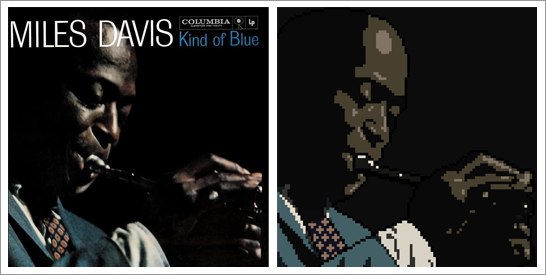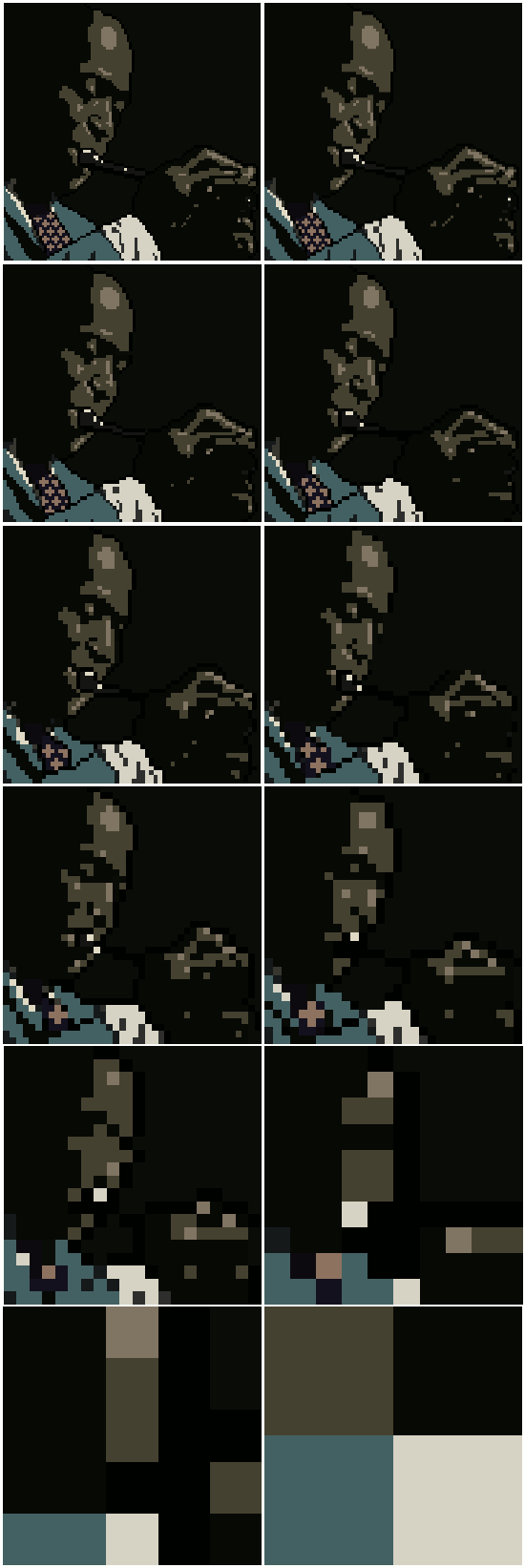June 27, 2011
When is kind of blue not kind of blue anymore? Art and fair use…
by Melville House

Last year Andy Baio recreated Miles Davis‘s Kind of Blue album as an 8-bit CD called Kind of Bloop which he sold and funded via Kickstarter. Though he had licensed the music, he was sued by the photographer Jay Maisel over Baio’s use of a pixelated version of the album cover. In the end, though still believing himself in the right, Baio settled for $32,500. As he writes at his blog Waxy.org in a post titled “Kind of Screwed”:
But this is important: the fact that I settled is not an admission of guilt. My lawyers and I firmly believe that the pixel art is “fair use” and Maisel and his counsel firmly disagree. I settled for one reason: this was the least expensive option available.
Baio argues that he could have won the case, should it have come to trail, even though “The 1976 Copyright Act, is frustratingly vague and continually being reinterpreted.”
Four main factors come into play:
- The purpose and character of your use: Was the material transformed into something new or copied verbatim? Also, was it for commercial or educational use?
- The nature of the copyrighted work
- The amount and substantiality of the portion taken, and
- The effect of the use upon the potential market
Baio argues that his pixelated cover is “transformative.” He cites as an example Jeff Koons successful copyright infringement defense in 2006 for his appropriation of fashion photographs.

Niagra by Jeff Koons

The photograph "transformed" by Koons
It should be mentioned that Baio does not mention the case that Koons lost in 1996 for the sculpture he made out of a photograph of a couple holding puppies.


Regardless, Baio now feels that the mere threat of legal action can squelch many appropriate “transformative” uses of material.
In practice, none of this matters. If you’re borrowing inspiration from any copyrighted material, even if it seems clear to you that your use is transformational, you’re in danger. If your use is commercial and/or potentially objectionable, seek permission (though there’s no guarantee it’ll be granted) or be prepared to defend yourself in court.
As appropriation of texts, images, music, video, etc. become increasingly common in the digital age, these legal issues will surely become more frequent and significant. As Baio puts it, where do you draw the line?
